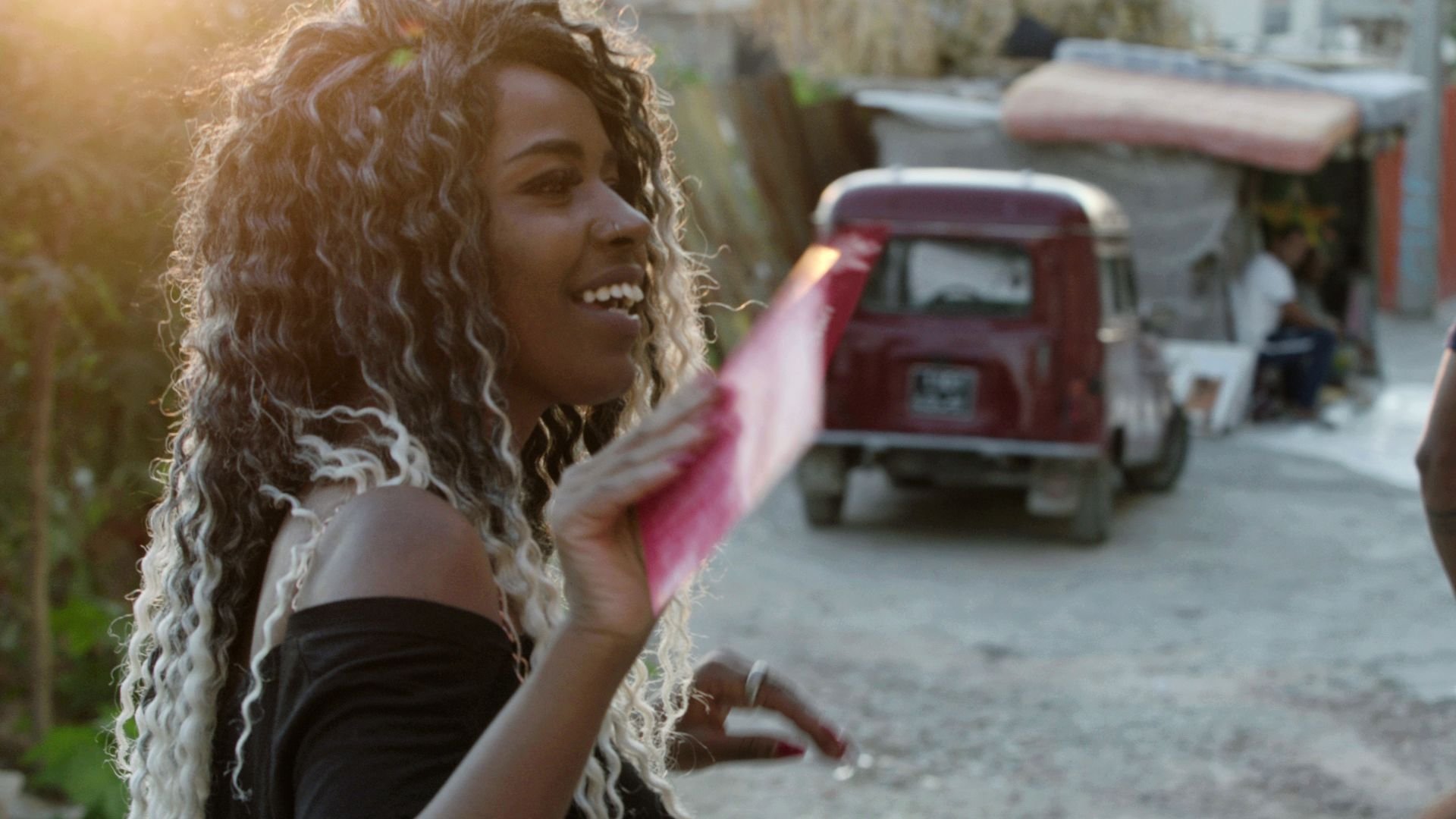A quiet revolution—change comes slowly for Tunisia’s Blacks
By GL Harris, Blogger-in-Residence
Twitter.com/glharris_
“We wear the mask that grins and lies,It hides our cheeks and shades our eyes,— This debt we pay to human guile; With torn and bleeding hearts we smile And mouth with myriad subtleties,
Why should the world be over-wise, In counting all our tears and sighs?”
Filmmaker Raja Amari became interested in making a film about race and equality after a groundbreaking law that criminalizes racism passed in Tunisia, making it the first Arab country to do so.
Ghofrane Binous, a flight attendant who made headlines after reporting a racist attack and the pilot deplaned the passenger, spoke before parliament about the incident then decided to take a different path.
She Had A Dream follows Binous’ emerging activism and run for parliament, as a Black Tunisian.
“This is one of the taboos in North Africa. I must also say that the notion of a multiracial society for them is unheard of. Therefore, the issue of race in a contemporary society is some sort of a non-issue. North African countries have a dual identity that of Arabs and Africans. With the influence of colonialism, light skin in North-Africa has evolved in a way that gives higher status to those who are light skinned North-Africans to a certain extent,” said Dr. Reinaldo Barroso-Spech, Co-founder and Co-director of the New York African Diaspora Film Festival.
The organization M’NEMTY, led by Saadia Mosbah, president of the anti-racist association, was the force that educated citizens, leaders and media on the assault and discrimination Tunisia’s blacks face. The grassroots group encourages Binous to step down once she decides to enter politics.
“The change is very slow. The revolutionary wave known as the Arab Spring in Tunisia allowed a little openness to deal with taboo issues such as, race, sexual orientation and the place of women. We must say that, in Africa, those are very difficult subjects to present to audiences. I Am Samuel from Kenya, in the festival this year, illustrates the situation very well,” Dr. Barroso-Spech said.
As the primary election looms, Binous manages to get placed on the ballot as a fourth option and enlists her neighbors, young and old alike in her campaign. She has an energy that serves to connect people across the racial and class lines.
“I want to urge Black Tunisians to engage with politics because we are not represented in this country,” Binous said.
The lack of representation is apparent in many aspects of her life. As a young school child she experienced an early form of racism and recalled how a teacher placed her at the back of the classroom and slapped her face, on more than one occasion. In another scene, at a beauty parlor owned by one of her Arab girlfriends, she mentions that the make up is too light for her complexion. Her girlfriend replies she doesn’t have any customers that are as dark. There are threats from taxi drivers. And her home town Gabes has transportation segregation begun after an interracial marriage took place over family objections.
“I want to leave Tunisia,” a 13-year-old girl says. Binous explains it’s important to “heal Tunisia” comparing their country to an ailing mother you would never abandon.
Binous’ own engagement was broken after the groom’s family objected to her complexion.
There are moments of joy when she visits her family in Gabes, cooks a meal with her mother or meets friends at a café. She seems to hide some of her pain at the realities of her life even as she shares the joys of her girlfriend’s marriage day and continues to support her party Tabya Tounes after losing her race.
“The mental block is within you,” says Salma Baccar, a former MP who meets with Binous before the main election. “You have to get over it. Baccar offers advice from her campaign following the Jasmine Revolution of 2011.
“I filmed people’s expectations…People had a great desire to talk and confide in you,” she said.
We see a subdued Binous post-election. She seems to be deepening her commitment to change, returning to law school and joining an emerging women’s political group.
Amari deftly tackles the theme of race and women’s equality using a light touch in her ground-breaking film.
“The issue of women and Islam is very important in her work and, this time, she’s presenting the story of a black woman in an Islamic society. The film is a very courageous step in films of that region. Raja Amari is also a good story teller. We are very much interested in voices like hers,” Dr. Barroso-Spech says.
“Some of her films have been showcased in ADIFF, She Had A Dream is the second title by her in the ArtMattan Films catalog. Another film of hers, Foreign Body is currently distributed by ArtMattan Films. Foreign Body is the story of a young Tunisian woman running away from her radically religious brother,” he said.
The New York premiere makes the film accessible to East Coast audiences and is an opportunity to see the diversity of filmmakers like Amari, who tackle difficult questions.
“Yes, it’s a New York premiere simply because this is not a popular story due to the subject matter. This title has not yet been happily making the rounds of Arab/Middle Eastern film festivals in the nation,” said Dr. Barroso-Spech. “We hope to see a change after the New York engagement. We have been exposed to race films from Algeria, Tunisia and Libya during al-Gaddafi years. An Egyptian filmmaker, whose work is in our catalog, indicated that selecting a dark skin Egyptian actor for his film was not a very well received choice.
“Among ADIFF’s aims, diversity is front and center. Selecting films that expose the diversity and, to a certain extent, the conflicts and contradictions in the continent of Africa give audiences food for thought. Films like Yacoubian Building by Marwan Hamed (Egypt), Bezness by Nouri Bouzid (Tunisia), Foreign Body by Raja Amari (Tunisia) and others expose audiences to thought provoking stories. That is important.”
Directed by Raja Amari, Tunisia, 2020, 90 min, documentary, Arabic with English subtitles


